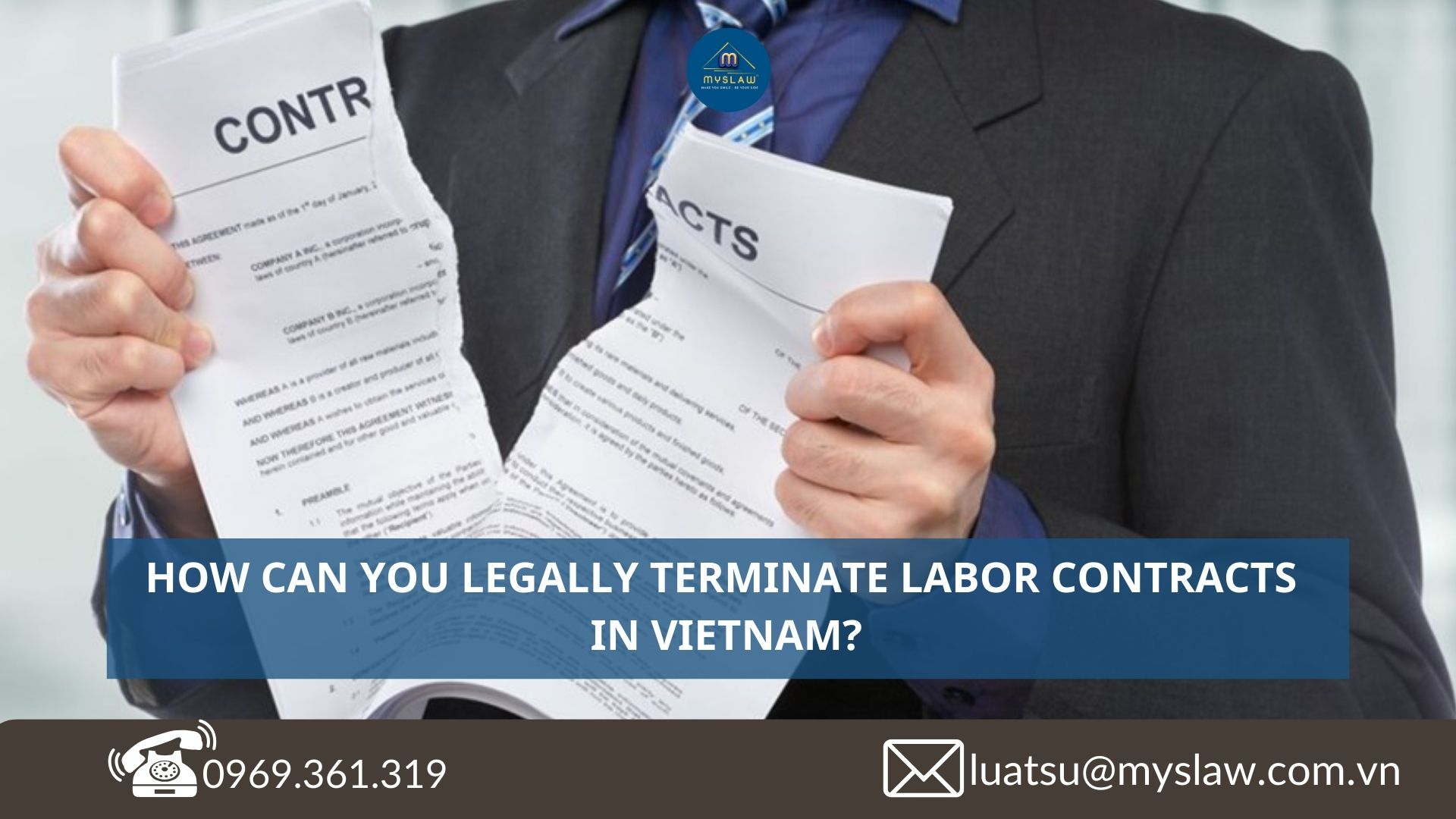To terminate labor contracts in Vietnam, employers and employees must adhere to a regulated process aimed at upholding fairness and balance. The Labor Code of 2019 and its associated regulations outline specific legal grounds, notice requirements, and rights for both parties, ensuring a lawful and respectful transition in ending employment relationships.
This article provides an in-depth guide to the legal steps required for terminating labor contracts in Vietnam, focusing on permissible grounds, procedural requirements, and the rights of involved parties.

Understanding Labor Contract Termination
Termination of a labor contract officially ends the working relationship between an employee and an employer. Common reasons include the expiration of contracts, mutual agreement, disciplinary measures, or retirement.
Article 34 of the Labor Code 2019 specifies 13 lawful scenarios for contract termination, including:
- Expiration of the labor contract.
- Completion of the work specified in the contract.
- Mutual agreement to terminate.
- Employee’s imprisonment, death, or incapacitation.
- Employer’s cessation of operations.
- Dismissal of the employee for misconduct.
- Unilateral termination by either party according to legal regulations.
- Layoffs due to restructuring or economic reasons.
Each scenario demands adherence to specific steps and compliance with relevant laws to avoid disputes.
Legal Grounds for Termination
1. Unilateral Termination by Employees
Under Article 35 of the Labor Code 2019, employees can terminate their contracts provided they meet notice requirements:
- 45 days for indefinite-term contracts.
- 30 days for fixed-term contracts (12–36 months).
- 3 days for contracts under 12 months.
In some cases, employees may terminate without notice, such as:
- Being assigned to the wrong work or location.
- Non-payment of wages.
- Harassment or abuse by the employer.
- Health concerns due to pregnancy.
2. Unilateral Termination by Employers
Employers may terminate contracts for reasons such as:
- Prolonged poor performance despite intervention.
- Unjustified absence for 5 consecutive days.
- Inability to work due to prolonged illness.
- Downsizing due to natural disasters, epidemics, or restructuring.
Immediate dismissal is permissible for severe misconduct, such as theft or disclosure of trade secrets. Employers must still comply with notice periods unless the misconduct justifies immediate action.
3. Mutual Agreement
Both parties can agree to terminate the contract, ensuring a smooth and mutually acceptable process.
Procedures for Lawful Termination
- Written Notice: A written notice is mandatory, detailing reasons for termination and adhering to required notice periods.
- Termination Documents: Includes resignation letters, job handover records, final salary calculations, and social insurance confirmations.
- Severance Pay: Employees with over 12 months of service are entitled to severance pay equivalent to half a month’s salary for each year of service unless they qualify for unemployment insurance.
Unlawful Termination and Its Consequences
Violations of termination procedures lead to significant repercussions:
- For Employers: Reinstatement of the employee, compensation for lost wages, and damages amounting to at least two months’ salary.
- For Employees: Compensation for operational disruptions caused by sudden resignation.
Mediation is recommended as the first step in resolving disputes, but unresolved cases may proceed to arbitration or court.
Special Considerations for Foreign Workers
Foreign workers are subject to the same termination laws, but their work permits are crucial. Expired or revoked permits automatically terminate contracts. Employers must ensure timely communication regarding work permit renewals.
Navigating Disputes
Disputes related to termination can be resolved through mediation, arbitration, or litigation. Employees unlawfully terminated may seek reinstatement or compensation. Employers should document compliance with the Labor Code to strengthen their position in any disputes.
The above information is provided by Mys Law. For any questions regarding the content of this article, please contact 0969.361.319 or email: [email protected] for further clarification. Best regards!
Compiler: Nguyen Anh Quan





